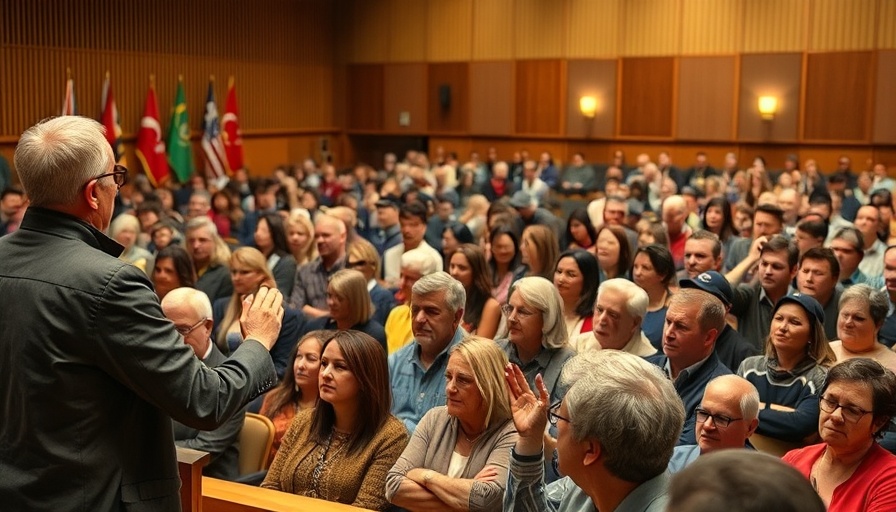
Congressman Faces Community Backlash Over Tax Cuts
In a compelling town hall meeting at the University of Nebraska, Congressman Mike Flood found himself in the eye of a political storm as constituents expressed their vocal disapproval for a tax-cut bill backed by former President Trump. With a robust turnout of around 700 attendees, predominantly opposed to the legislation, Flood’s resolve was put to the test in what can only be described as a heated exchange.
The People’s Concerns: Medicaid Cuts at the Forefront
Many in the audience were particularly upset about the cuts to Medicaid benefits, viewing the recently passed tax-break and spending-cut legislation as disproportionately favoring wealthier individuals while jeopardizing essential healthcare services. Flood, recognizing the gravity of their concerns, attempted to defend the bill, arguing that it “protects Medicaid for the future.” However, this assertion was met with a chorus of boos, illustrating the depth of discontent among his constituents.
Polling Perspectives: An Indicator for Future Elections
With the midterm elections on the horizon, the backlash experienced by Flood highlights a critical moment in American politics. How the electorate reacts to policies such as the tax cuts will play a significant role in shaping the future Republican hold on power. According to political analysts, voter responses during town hall meetings can serve as early indicators of electoral sentiment, especially in swing districts.
Challenging Questions: Voter Engagement in Action
Flood’s engagement with the audience opened up a platform for passionate discussions beyond just taxation. Several attendees addressed hot-button issues such as immigration enforcement and educational spending cuts, prompting an intense dialogue on Republican policies. As participants queued to voice their questions, it became evident that a significant number of constituents felt disenfranchised and frustrated—not only by the tax legislation but by a perceived lack of responsiveness to broader community needs.
Counterarguments: The GOP Narrative on Tax Cuts
While dissent was prevalent, there are arguments made by GOP leaders that the tax cuts will spur economic growth and job creation. Advocates for the legislation assert that these measures can ultimately benefit the middle class by enhancing available job opportunities. Such claims are contentious, and while Flood defended his stance, many constituents were not convinced of the promised outcomes.
Community Responses: Voices of Discontent
The vivid atmosphere of the town hall encapsulated how frustrated residents are with their representatives. Some attendees pointedly challenged Flood on his previous statements about not supporting fascism, underscoring a climate of distrust in leadership. The heightened emotions expressed by the crowd show a public eager for accountability and reform, embodying the sentiments of everyday Americans seeking a voice in their government.
A Path Forward: Engaging with Dissent and Advocacy
Despite the challenges Flood faced, the event serves as an important reminder of the necessity for elected officials to meet and engage with constituents, especially in a politically charged environment. Open communication is essential for fostering a deeper understanding between representatives and the communities they serve. As voters increasingly prioritize transparency and accountability, Flood's future encounters will likely remain contentious but crucial.
The Bigger Picture: Voter Sentiment in Central Florida
For residents of Central Florida, especially homeowners and community members vested in local healthcare and public policy, this town hall offers valuable insights into the broader political landscape. Observing the town hall dynamics could provide homeowners in Davenport and Polk County with essential lessons on civic involvement and community activism, emphasizing the importance of standing up for local needs and advocating for informed governance.
As national political narratives evolve and individuals like Flood navigate their realities under public scrutiny, it is essential for all citizens to remain active in local discussions. Strengthening community bonds through open dialogue positions neighborhoods to advocate effectively for their interests.
 Add Row
Add Row  Add
Add 




Write A Comment